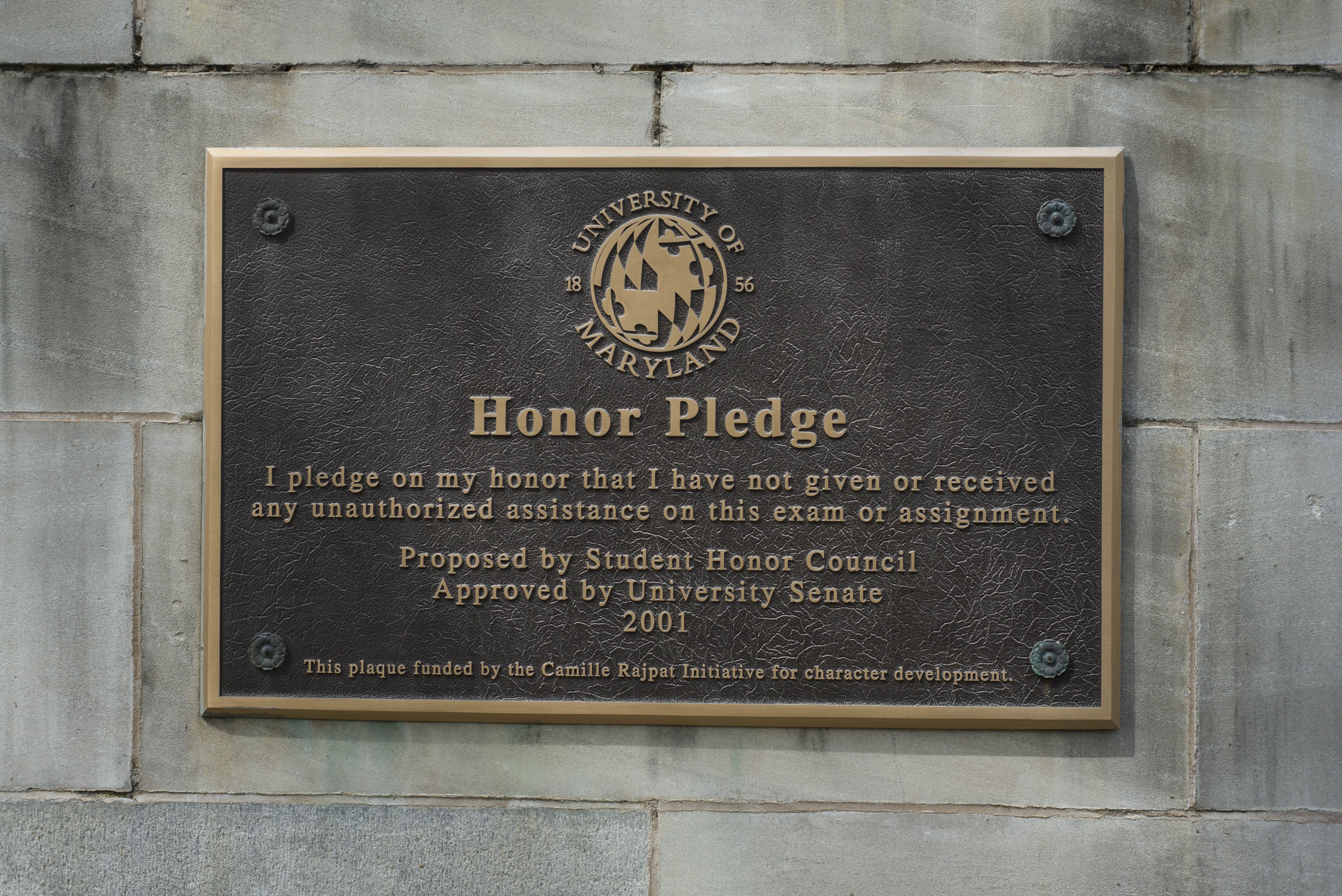Though the University of Maryland does not require students to sign its honor pledge, professors can challenge students if they refuse to sign.
However, a proposal in the University Senate aims to make students more aware of the options available to them if they face any kind of punishment for not signing the pledge.
The Senate Executive Committee voted Tuesday morning for the Educational Affairs Committee to review a proposal to add a student’s right to recourse in these cases to the undergraduate student grievance policy.
“The bill is just about providing clarity about if you feel like you were mistreated for not signing the honor pledge,” said James Bond, the assistant director of student conduct and a faculty senator. “You want to make sure students are being treated fairly and just make it clear to students.”
Though all students are bound by the honor pledge and its cheating-free standards, signing the pledge on exams or assignments is encouraged but left to the student’s discretion, which is why graduate student Chuck Englehart, who received his undergraduate degree from this university in 2011, proposed this bill.
“By making it optional, instead of mandatory, you kind of put more significance on it,” said Englehart, a telecommunications graduate student and part-time graduate student senator. “It’s something that you choose to do.”
The Honor Council website currently states that if a student chooses not to sign the pledge, the faculty member should ask for an explanation, which Bond said creates a healthy discourse about academic integrity. However, if a student is penalized or mistreated after such a discussion, there is no procedure for protection or alleviation, Englehart wrote in the proposal.
“It’s your right not to sign it, but it’s also the faculty’s right to challenge you on why you don’t want to sign it,” Bond said. “There shouldn’t be that mistreatment, but professors are allowed to challenge students.”
Student defender Steven Palmer said he understands the concept of the proposal, but added that he’s never seen the issue come up in more than a year working for the Student Legal Aid Office.
“I’ve never seen someone not sign it,” the junior government and politics major said. “You’re already bound to the Code of Student Conduct just by being a student here.”
The senate will vote Wednesday afternoon on a revision to the undergraduate student grievance policy, but it will not include this proposal. Reka Montfort, senate director, said it likely will not be addressed until the fall semester.
“The idea started back when I was an undergrad; a couple of teachers made the point of making sure we signed the honor pledge,” Englehart said. “I never really thought that was the spirit of what was supposed to happen. … I wanted to make sure everyone knew it was optional.”



